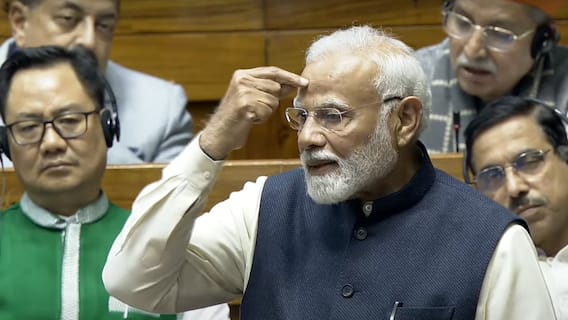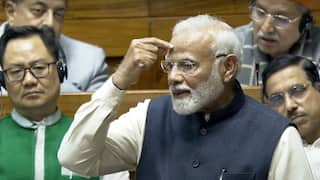IMF Chief Economist Weighs In On India's New Farm Laws; Says, 'It Has Potential To Raise Farmers’ Income'
The Chief Economist of the Washington-based global financial institution further said there are multiple areas where the reforms are needed, including infrastructure.

International Monetary Fund (IMF) Chief Economist Gita Gopinath has said the recently-enacted farm laws in India have the potential to increase farmers’ income but added there is a need to ensure the social safety net is provided to the vulnerable cultivators.
Asserting the Indian agriculture is in need of reforms, Gopinath said: “These particular farm laws were in the area of marketing. It was widening the market for farmers. Being able to sell to multiple outlets besides the mandis without having to pay a tax. And this had the potential to raise, in our view, farmers’ incomes.”
READ: FIR Against Yogendra Yadav, Tikait, 20 Others For Rioting, Criminal Conspiracy
“That said, every time reform is put in place, there are transition costs. One has to make sure and pay close attention that it’s not harming vulnerable farmers, to make sure that the social safety net is provided. Clearly, there is a discussion right now and we’ll see what comes out if it,” PTI quoted Gopinath as saying in response to a poser on the new farm laws in India.
The Chief Economist of the Washington-based global financial institution further said there are multiple areas where the reforms are needed, including infrastructure.
Thousands of farmers in India have been camping at several Delhi border points since November 28 last year, demanding a repeal of the farm laws and a legal guarantee on MSP for their crops.
ALSO READ: Rashtriya Kisan Mazdoor Sangathan & BKU Withdraw Support From Farmers' Protest Over R-Day Violence
The Indian Government, which has projected the three farm laws as major reforms in the agriculture sector aimed at removing middlemen and allowing the farmers to sell their produce anywhere in the country, has so far held 11 rounds of talks with the farmer leaders. The farmer leaders have, however, categorically stated they would settle for nothing less than a complete repeal of the laws, which they find pro-corporate.
Trending News
Top Headlines






































